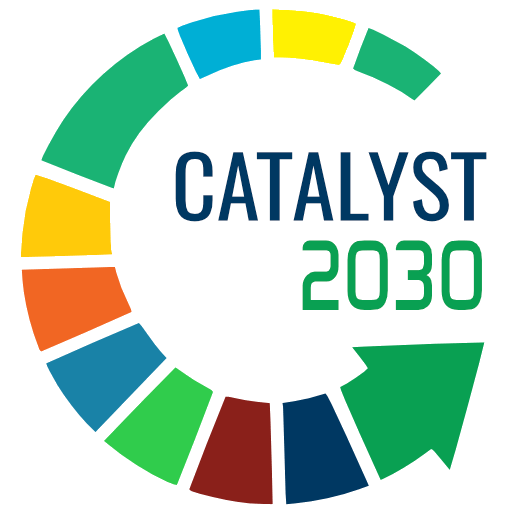
The contemporary discussion on environmental regeneration and the imperative need to build a harmonious and sustainable future has gained global prominence. This focus is driven by growing challenges such as climate change, ecosystem degradation and resource scarcity, which require a profound reassessment of our relationship with the planet. However, it is essential to recognize that regeneration is not restricted to the ecological sphere, extending to other crucial spheres of existence, such as the social, economic, cultural and psychological dimensions.
The term “regeneration”, from the Latin re-generare (“to be born again”), has a rich and complex conceptual trajectory. It is used in several areas of knowledge to describe processes of renewal, repair, restoration or rebirth. In biology, it refers to the ability of organisms to rebuild lost tissues or organs, such as the regeneration of a limb in a salamander; in theology, it evokes the idea of a spiritual or moral rebirth; in urbanism, it describes the revitalization of degraded areas, transforming them into vibrant and functional spaces; and in the social sciences, it applies to the reconstruction of post-conflict communities or the revitalization of weakened social ties.
In this sense, the application of the concept of regeneration to human relationships – and to the intrinsic interconnection between them and the environment – becomes essential. Social regeneration provides the recreation of possibilities for collaboration, empathy and trust, vital elements for the establishment of a full, harmonious and sustainable existence.
In an increasingly interdependent and complex world, the ability to cooperate and trust each other is critical to addressing global challenges, resolving conflicts, and building resilient communities.
More than a mere aspiration, the regeneration of human relationships is an intrinsic condition for our very survival as a species and the health of the planet we inhabit, as social fragmentation and mutual distrust prevent the collective action necessary to address existential crises.
The degeneration of relationships in modernity
The concern with the quality and structure of human relations is as old as philosophy itself. Greek thinkers, such as Aristotle, were already exploring the importance of philia (friendship/civic love) for polis life (city, collective life) and individual flourishing (eudaimonia), indicating a view that healthy interconnectedness and civic virtue were essential to human nature and community prosperity. However, the notion that relationships can degenerate and therefore need to be regenerated, has gained prominence with the transformations of modernity and the cost that modern life entails for humans, especially through the complexification of social and economic structures.
This degeneration is deeply analyzed by classical concepts of alienation and estrangement. Karl Marx criticized the socioeconomic alienation of capitalism, where labor and product become alien to the individual, and competition instrumentalizes human relations, eroding solidarity. Max Weber addressed the estrangement resulting from rationalization and the “disenchantment of the world”, where the bureaucratization of impersonal norms stifles autonomy and transforms interactions into mere formal transactions.
In the psychoanalytic field, Sigmund Freud revealed the “malaise in civilization”, the result of the repression of drives in the name of social order, leading to dissatisfaction and hindering authentic relationships. Jacques Lacan complements by postulating that identity itself is constituted by alienation in the language and desire of the Other, generating a division that prevents a transparent relationship with oneself and with others. Although with different focuses, these theorists converge by demonstrating how modern structures (economic, social, and psychic) have contributed to undermining trust, empathy, and a sense of community.
This theoretical basis gains even more critical resonance in contemporary times, where the dominant logic has imposed a severe cost on mental and physical health and the quality of relationships.
The exacerbated focus on productivity, which instrumentalizes people’s time and lives, and the persistent patriarchy, which perpetuates hierarchies and inequalities, exacerbate alienation and estrangement.
Such factors make it difficult to build authentic and empathetic bonds, transforming the regeneration of relationships into not only a social urgency, but an imperative for individual and collective well-being in a society that increasingly feels fragmented and disconnected.
Paths to regeneration: ethics, dialogue and interdependence
Faced with the scenario of degenerated and deeply alienated relationships, the search for paths to regeneration becomes an imperative, and several contemporary thinkers offer valuable frameworks. Martin Buber, for example, introduced the distinction between the I-Thou and I-It relationship: the former, an authentic encounter of reciprocity and mutual recognition, contrasts with the latter, which instrumentalizes the other. Regeneration, from Buber’s point of view, requires the primacy of the I-Thou, a genuine dialogue that opposes reification and instrumentalization.
In addition, Joan Tronto developed the ethics of care, which emphasizes interdependence and mutual responsibility, valuing care as a central moral and political practice. This ethic starts from human vulnerability and the intrinsic need for lifelong care, inviting us to recognize and sustain each other and the environment.
Furthermore, Bruno Latour challenges anthropocentrism by proposing that we are “Terrestrials” who need to learn to “compose the common” with a multiplicity of “actants”, human and non-human. For Latour, the regeneration of human relationships is intrinsically linked to our relationship with the planet, requiring a reorientation towards Gaia and the construction of new forms of coexistence. These perspectives, which transcend individualistic and instrumental logic, offer a robust theoretical framework for re-imagining and reconstructing human connections, promoting authentic dialogue, the ethics of interdependence, and a profound re-connection with the environment, essential to overcoming fragmentation and achieving meaningful and sustainable cohabitation.
Photo: Mike Derkach/Pexels
In the face of the multiple challenges that characterize the Anthropocene era, from the climate crisis to the proliferation of violence in its various facets, regeneration in all spheres emerges as an urgent imperative. As analyzed through the lens of Marx, Weber and Freud, the pathologies of modernity, rooted in processes of economic, social and psychic alienation, fragmented human relationships, transforming philia into estrangement and coexistence into conflict. However, the proposals of thinkers such as Buber, Tronto and Latour offer a beacon for reconstruction, indicating that overcoming instrumentalization in favor of authentic encounter, reciprocal care and planetary interdependence is the path to a new paradigm of existence.
In this sense, prioritizing Martin Buber’s “I-Thou”, practicing Joan Tronto’s “ethics of care” and Bruno Latour’s “composing the common” means adopting an intrinsically collaborative attitude. This implies considering the other – whether human or the elements of the natural world – as an essential part of one’s life, recognizing the fundamental interconnectedness of all existences. Such a posture requires renouncing the merely individual interest in favor of broader considerations, forging relationships based on otherness and mutual recognition, which overcome the strength of the focus on productivity and the structures of patriarchy, which have cost the health and quality of connections.
Rethinking education to cultivate empathy
At the broader societal level, the realization of this regeneration requires a profound paradigmatic transformation that reorients our priorities and daily practices. This translates into rethinking education to cultivate empathy and active listening, developing public policies that integrate care in all its dimensions – from health to social assistance –, designing urban spaces that foster encounter and collaboration, and reorienting economic systems towards well-being and circularity. Regeneration, therefore, transcends mere repair or sustainability, seeking an evolution to a higher level of health and functionality for individuals, communities, and the planet, building a world where relationships are more resilient, empathetic, and collaborative.
Although these proposals are challenging and may seem to depend mostly on governmental and systemic actions, regeneration is an ongoing process that is also deeply nourished by individual engagement.
It is crucial to recognize that the personal attitude of each one, through the relationships they cultivate daily, has a transformative power capable of generating a positive impact on the environment. By embracing a vision of the future where interdependence is celebrated and diversity is a strength, we can collectively pave the way for a world where human actions are marked by trust, solidarity, and a deep sense of belonging – a future where environmental sustainability is intrinsic to social vitality, and where life itself can, in fact, to be “born again” in all its fullness.
References
BUBER, Martin. Me and You. Translation, preface and notes by Newton Cunha. São Paulo: Centauro, 2001.
FREUD, Sigmund. The malaise in civilization. Translated by Paulo César de Souza. São Paulo: Companhia das Letras, 2020. (Complete Works of Sigmund Freud, v. 18).
LATOUR, Bruno. Facing Gaia: eight lectures on the new climatic regime. Cambridge: Polity Press, 2017.
MARX, Karl. Economic-philosophical manuscripts of 1844. Translated by Jesus Ranieri. São Paulo: Boitempo, 2004.
MARX, Karl. Capital: critique of political economy. Book I: The Process of Production of Capital. Translated by Rubens Enderle. São Paulo: Boitempo, 2013. v. 1.
TRONTO, Joan C. Moral Boundaries: a political argument for an ethic of care. New York: Routledge, 1993.
WEBER, Max. The Protestant ethic and the spirit of capitalism. Translation and notes Antonio Flávio Pierucci. São Paulo: Companhia das Letras, 2004.



